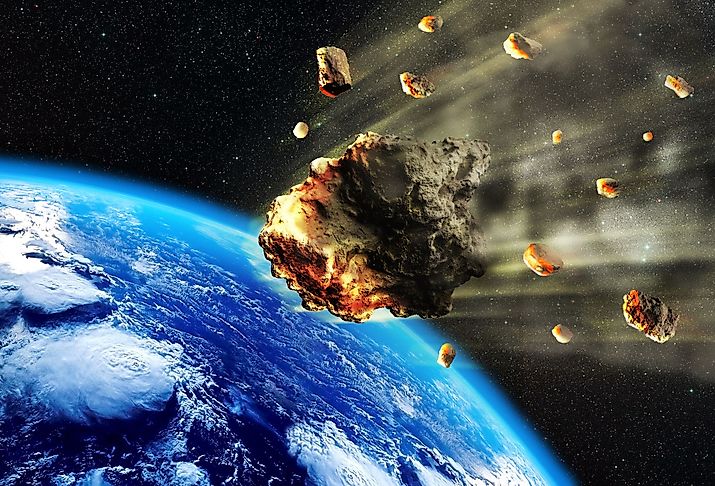Science & Nature
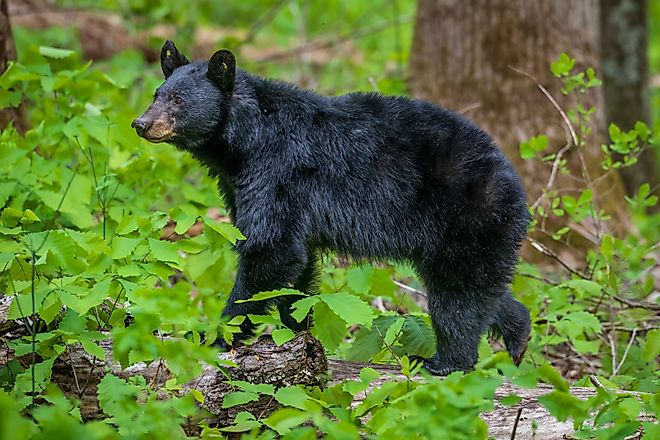
The 11 Deadliest Animals in Tennessee
These are the 11 deadliest animals in the state of Tennessee, from slithering snakes with toxic venom to large mammals with a vicious temper.
The 10 Deadliest Animals in North Carolina
Discover the ten deadliest animals found in North Carolina, from venomous spiders and snakes to intimidating reptiles such as alligators.

How Does Mars' Gravity Affect Our Oceans?
By studying Earth’s ocean currents, researchers have found that the strength of the tide overlaps with the gravitational relationship between Earth and Mars.

The 13 Deadliest Animals in Oklahoma
Oklahoma is home to several poisonous, venomous, or territorial animals that can cause injury, and in some cases, death. Discover the deadliest in the state.
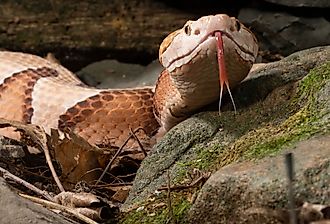
The 9 Deadliest Animals in Massachusetts
Massachusetts is home to these ten deadly animals, including the deer tick, red foxes, black bears, timber rattlesnakes, and more.

Titanosaurs Are the Largest Animals to Ever Roam Our Planet
The Titanosaur was one of the largest animals to ever roam the planet, reaching an immense length of over 100 feet over 100 million years ago.

Why Are Canada's Glaciers Causing A Drought?
Canada's glaciers make up a big chunk of the ice in the Arctic Circle, and their recession threatens the freshwater supplies essential for regional survival.
Astronomers Detect Massive Black Hole Awakening in Real Time
A sudden burst of light in galaxy SDSS1335+0728 reveals a potential massive black hole's awakening, captivating astronomers.
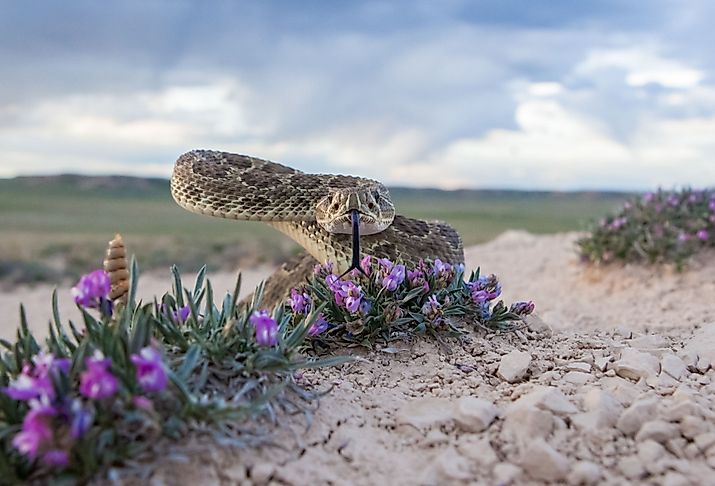
The 10 Deadliest Animals in Nebraska
Whether you want to visit Nebraska or live there, knowing which animals to avoid is important. These are the ten deadliest animals in the state.
The 10 Deadliest Animals in Rhode Island
Discover the ten deadliest animals in Rhode Island. Learn how to stay safe and avoid encounters with potentially dangerous creatures.
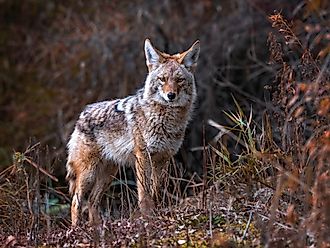

America's 10 Largest Living Reptiles
Reptiles such as the green sea turtle, the American crocodile, and more are among the largest living reptiles in America.

The 11 Deadliest Animals in Idaho
Idaho is home to a multitude of deadly animals such as the prairie rattlesnake, black widow spiders, grizzly bears, and more.

The 11 Deadliest Animals in Arizona
According to the Venomous and Poisonous Animals in Arizona article by the Arizona Game and Fish Department, uncover the top 11 deadliest animals in Arizona.
Why We Can't Avoid Singularity Inside Every Black Hole
Black holes are one of the most fascinating phenomena in the universe, and at their heart lies something even more puzzling—a singularity.
How Much Water is in Earth's Crust?
Along with the 71% of water covering the Earth's surface, there are also millions of cubic miles hidden beneath the crust.
Where Do Most Earthquakes Occur?
Discover the world's three most active earthquake locations: Ring of Fire, Alpide Belt, and the Mid-Atlantic Ridge, and learn about tectonic plate movement.
The Deadliest Earthquakes Of The 21st Century
Countless destructive and deadly earthquakes have taken place during the 21st century. The worst of which took place in the Indian Ocean in 2004.

Which Countries Have the Least Natural Disasters
The WorldRiskIndex estimates a country's natural disaster risk by using 28 indicators instead of just looking at the chance of a natural hazard event.
What Causes Earthquakes?
Exploring the science behind earthquakes: the shifting of tectonic plates, seismic activity, and the factors contributing to earth's powerful tremors.
5 Human Activities That Can Cause Earthquakes
Learn how human activities like mining, fracking, water disposal, dam construction, and geothermal energy production trigger seismic events worldwide.
The World's Largest Birds
Embark on a thrilling expedition into the realm of the world's largest birds, where you'll encounter incredible species like the rhea, turkey, and albatross.

What Were The World's Deadliest Earthquakes?
Earthquakes have always been one of the most catastrophic events humans can endure. No matter what period, the threat of massive quakes always remains.

Moons
The moons in our solar system have fascinating stories and a great impact on their parent planets, particularly through the gravitational pull of the tides.

15 Animals Only Found In The United States
Explore and learn about the 15 most interesting animals that are endemic to the United States, from the Red Wolf to the tiny Bobtail Squid.

Are There Copperhead Snakes In The Everglades?
The only region of Florida with native populations of copperheads is the Panhandle. Specifically, they tend to stick to the Apalachicola River Basin.
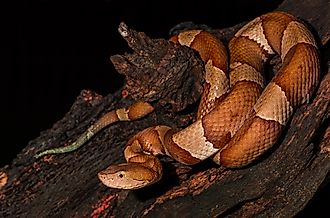
10 Most Dangerous Plants in Florida
These 10 plants found in the Sunshine State of Florida are known for their poison and toxicity, making them very dangerous for humans.

The Biggest Earthquakes In US History
Learn about the United States' 10 biggest earthquakes, the aftermath, and preventative measures the country enacted as a result.

8 Most Dangerous Plants In Arizona
Some of these plants produce toxins that can cause severe reactions upon contact or ingestion, while others are capable of inflicting physical injuries.

What Countries Have The Least Risk Of Earthquakes?
Discover the 10 countries with the least risk of earthquakes and reasons for their low risk. Learn about other natural disasters that affect the countries.
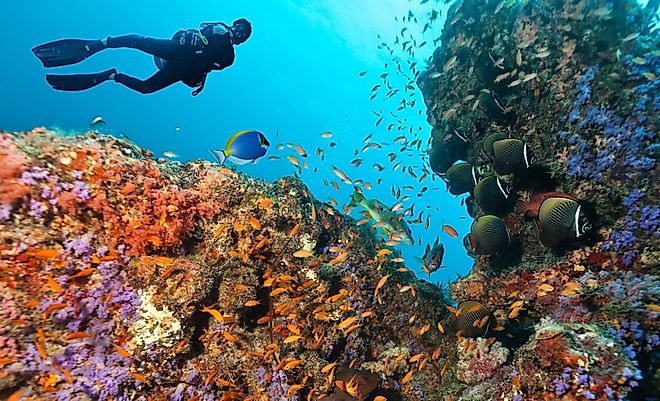
How Many Species Of Fish Are There?
There are more species of fish than mammals, birds, reptiles, and amphibians combined! Read more about the diverse array of aquatic vertebrates.
The Most Dangerous Animals In The World
Uncover fascinating facts about some of the world's deadliest animals, including their habitats and why their interactions with humans can be lethal.
7 Most Dangerous Plants in Texas
Before visiting Texas, it is a good idea to get familiar with the state’s plant life. Learn more about seven of the most dangerous plants in Texas.
How Many Legs Does A Spider Have?
Whether you find spiders frightening or fascinating, there is so much to learn about these web-weaving creatures. Let's start with their basic morphology
Where Do Most Earthquakes Occur In The US?
Learn about US seismic hotspots such as the Pacific Ring of Fire and lesser-known fault lines and learn about the 10 states with the most earthquakes.

Black Holes Might be Defects in Space and Time
This article describes black holes in detail, explaining how they came to be, how we know they exist, and recent discoveries.

The Fastest Animals In The World
Meet the fastest animals in the world, who wield their remarkable speeds in survival races that impress all who witness them.

Are Turtles Amphibians?
Turtles resemble both amphibians and reptiles but ultimately, they belong to the latter class. This article explains why.

How Are Earthquakes Measured Using The Richter Scale?
Explore the Richter Scale's categories, understand the impacts of micro to great earthquakes, and, learn about the Richter Scale's history and use today.

What Is Commensalism?
See how commensalism works when one organism benefits and another stays unaffected through captivating natural examples.
